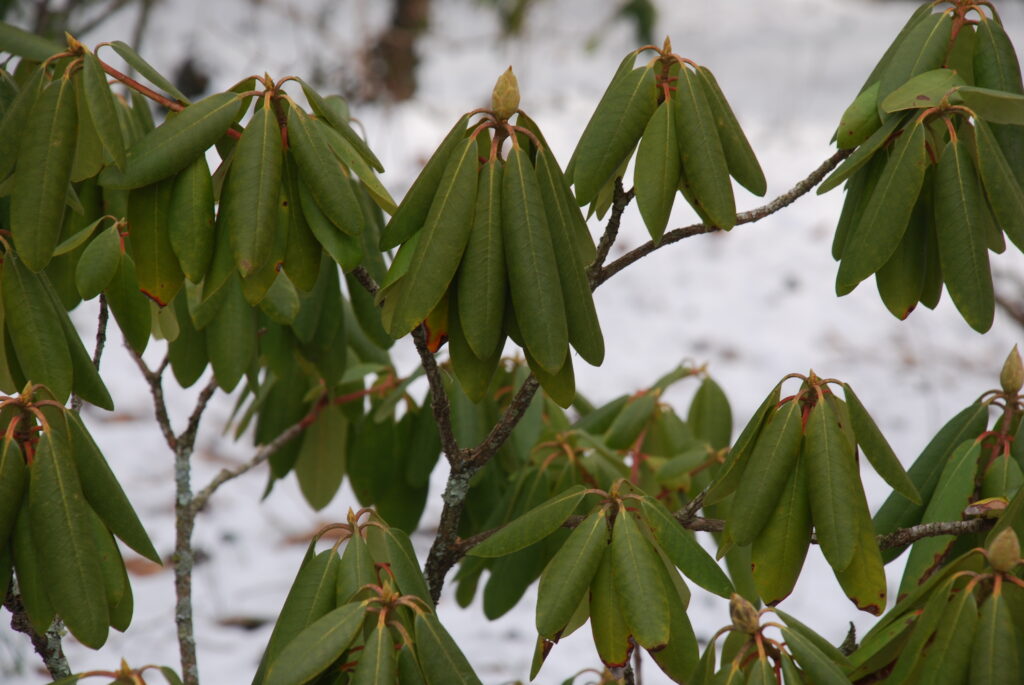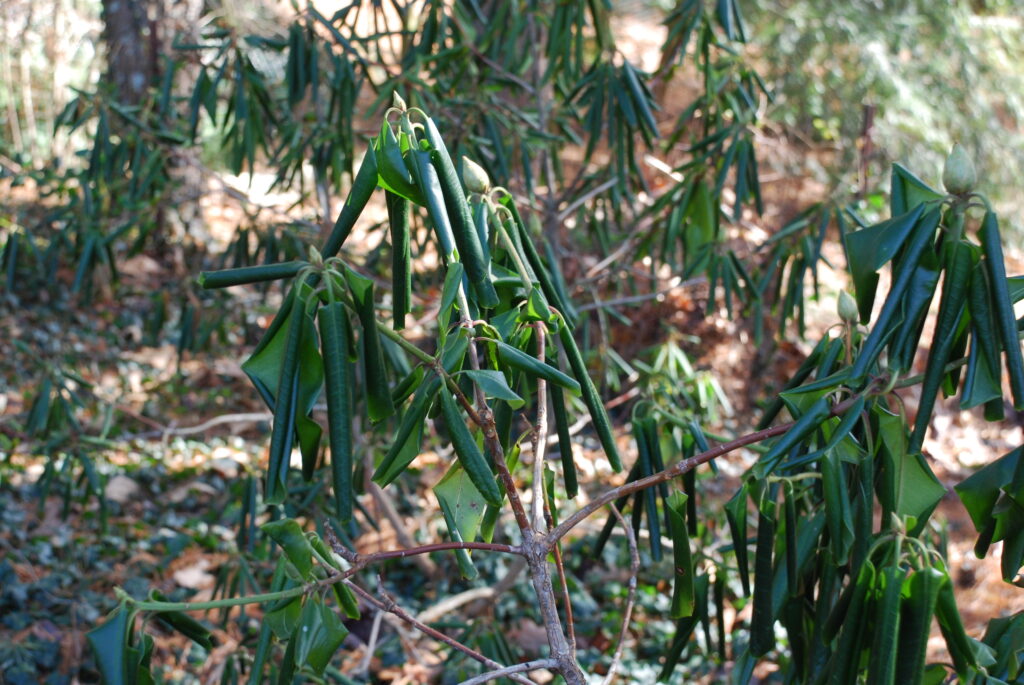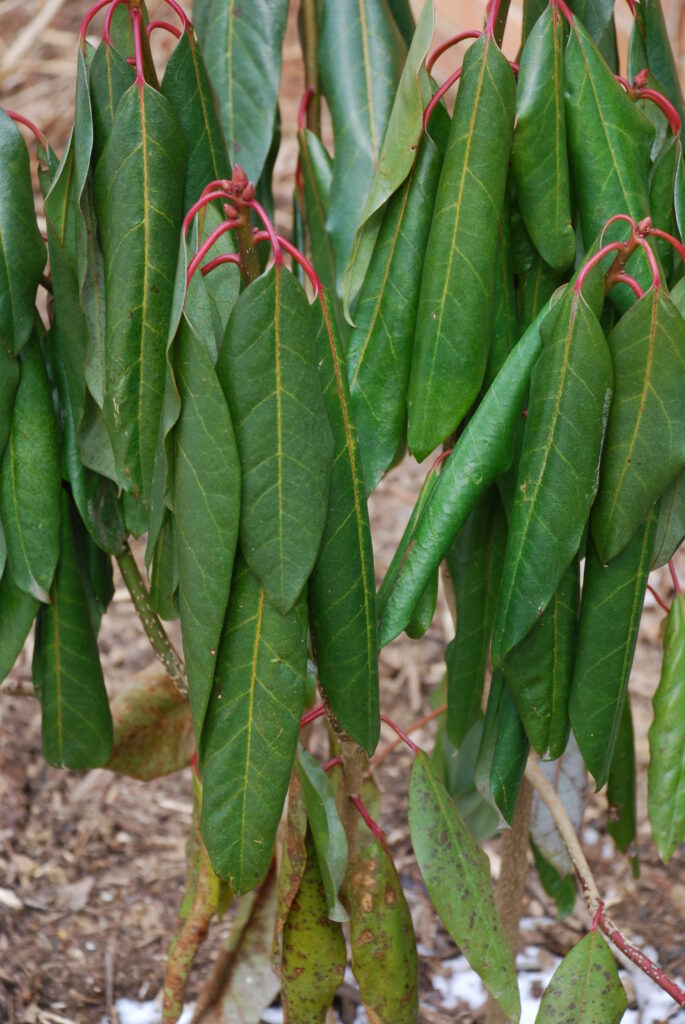
How cold did it get overnight? Perhaps you should check out your rhododendrons outside. The leaves of some rhododendron species (Rhododendron spp.) and Redneck Rhody (Daphniphyllum macropodum) droop down and/or curl up during really cold nights. Plant scientists believe that this reaction may be a plant’s way of reducing water loss through stomata cells on the undersides of leaves. This phenomenon is called “thermonasty” or “thermotropism”.
Rosebay rhododendron (R. maximum) also respond to thermonasty and Catawba rhododendron demonstrate a partial response. (USDA hardiness zones 6b-9). Most rhododendron species do not display this trait.
Scientists do not fully understand this plant tropism. It is thought to have something to do with leaf cell hydration. Thermonasty may also protect leaves during periods of high irradiance by sunlight. It may protect certain plants from cold temperature injury during daily thawing and re-freezing.

Essentially, the leaves are a type of natural thermometer. When temps dip below 20°F, leaf margins curl inward leaves roll up and droop. During periods of exposure to extreme cold, reducing surface area helps to protect the leaves. On most days, leaves unfurl to their full natural position the next morning if temps rise above 32 °F (0°C).
Tropisms are useful adaptations with several important benefits. Leaves that are particularly susceptible to damage from desiccating winter winds—tightly curled leaves — ensure surface area is reduced, thereby mitigating this threat. Broad leaf positioning to maximize sunlight collection during dark winter days may be a liability when it comes to snow loads. Narrow, drooping, needle-like leaves shed snow that may otherwise accumulate and break branches.

Caveat– gardeners may need to irrigate evergreen shrubs every 2-3 weeks if natural rainfall and snowfall levels are more than 60% below traditional seasonal amounts.

 Posted in
Posted in 
